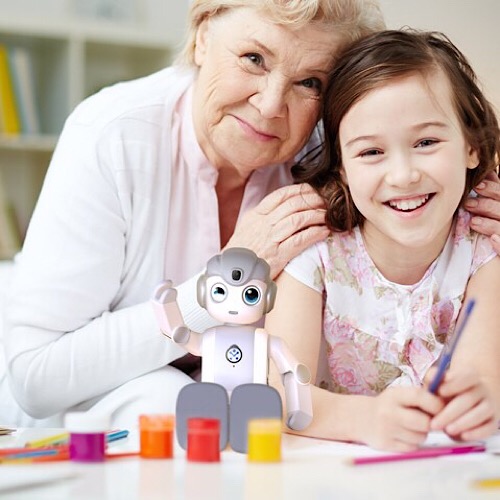A new project from researchers at Cardiff University will explore how ‘mixed reality’ technology can be used to combat feelings of loneliness and isolation.
Scientists are exploring whether off-the-shelf technology that brings together the virtual and physical world can be used to tackle the growing problem of loneliness in the UK.
The team are assessing the suitability and feasibility of devices that could, for example, display live hologram-like images of friends and family in a living room to recreate the social interactions that many people hold dear.
Whilst located hundreds of miles away from each other, friends and relatives could experience a feeling of being connected in ways much closer to real-life interactions, the team say, whether it be in their own home or a care setting.
The project is an attempt at tackling chronic loneliness, with around 1.5 million peopled aged 50 and over in the UK reported to be suffering from the condition. A recent UK government white paper suggested that loneliness could be costing private sector employers up to £2.5bn a year due to staff absence and resulting productivity losses.
The growing problem of adult loneliness has been made worse by the series of lockdowns necessary throughout the coronavirus pandemic over the last 18 months, further severing the physical ties between friends and relatives.
Thanks to new funding from UKRI, the Cardiff University team are developing a software prototype that will include a virtual reality headset, worn by a user, and a telepresence robot that can beam images and sounds of the friends and relatives back to the user in various shapes and forms, such as a hologram.
The researchers describe the technology as ‘mixed reality’ and liken the experience to playing the popular smartphone game Pokémon Go.
“You can imagine an elderly relative sitting in their living room with a cup of tea and interacting with their relatives as if they were sat right in front of them,” said Dr Daniel J. Finnegan, the project’s principal investigator, from Cardiff University’s School of Computer Science and Informatics.
“This technology could be used to render holograms of people that could literally be hundreds or thousands of miles away and allow people to chat or play games with one another as if they were in the same physical place. Our aim is to support community building activities and reduce the growing loneliness epidemic.”
The first stages of the project will involve gathering information from potential end-users, with both price and technology acknowledged as potential barriers for the elderly.
Dr Finnegan plans to work alongside charities and other organisations to develop the product and help roll it out to stakeholders, with a particular emphasis on developing training programs for carers to equip them with the necessary IT skills required to engage with the technology.
“In a world dominated by social media, where we have so many tools and technologies to connect with another, loneliness remains a huge problem,” Dr Finnegan continued.
“This, I believe, could be linked to the shallow experience of connectedness these technologies provide. Connectedness is more than just being connected – it requires a shared understanding; the chance to socialise; agency and independence, and to share meaningful experiences and interact with other human beings.
“By using technology in a smart, meaningful and research-driven way, this project aims to reduce feelings of emotional and social loneliness and isolation and go some way to addressing the growing problem in the UK.”
The funding, awarded through UKRI, was part of The Healthy Longevity Global Competition, with over 500 awards worth £62,500 each issued globally as seed funding to advance innovative ideas.
In March this year, MPs in the All-Party Parliamentary Group (APPG) on Loneliness suggested to the government that public transport should be ‘loneliness proofed’ and the digital divide more effectively tackled to maximise social interaction.
Repeated studies have shown that robots can often improve the mental health of older people, as well as mitigating feelings of loneliness. Such findings could pave way for the introduction of social robots in UK care homes. Meanwhile, research actively continues into finding ways for technology to improve care for people with dementia, affording sufferers the opportunity to maintain and improve their independence, safety and wellbeing.
source: E&T










